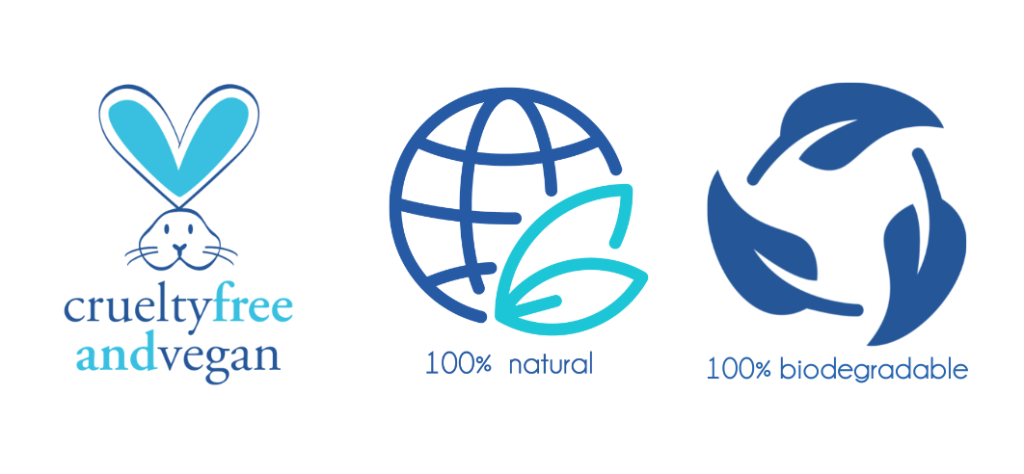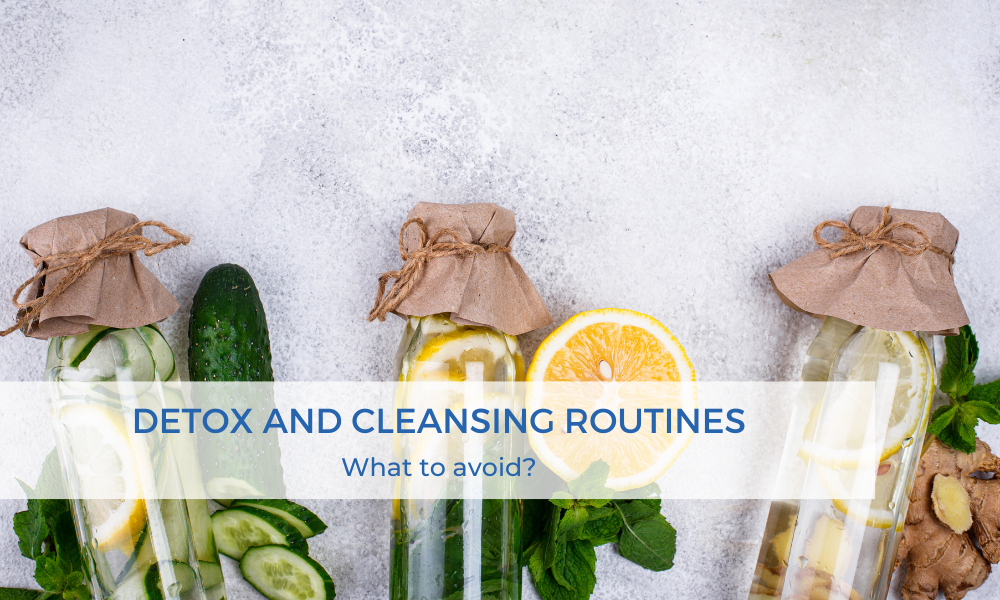
THE SECRET TO LONG-TERM DETOXIFICATION
The effects of healing plants and herbs often last much longer than certain hard-to-process chemical “All-stars,” even if plant-based remedies take longer to exert their beneficial effects. This is because natural healing methods can support the body’s self-healing mechanisms until the balance of our entire system is restored.
Read the article to learn about foods, drinks, and ingredients that you should avoid to aid detoxification.
WHAT TO AVOID DURING DETOXIFICATION?
Let’s start with the ingredients whose harmful effects are almost universally known, yet many people continue to consume them.
WHAT ARE WE BEING FED?
Food additives accompany our diet throughout. In some countries, with an annual average consumption of 600 kilos of food per person, up to 2.5 kilos of additives can enter the bodies—without anyone specifically seeking additive-rich food. It’s well-known that E-numbers can be harmful, but if we think about it: who would buy real, additive-free fruit syrup that is dull and cloudy instead of the brightly colored, non-perishable syrup enriched with E-numbers?
E-number additives are not poisons, but it would be an exaggeration to say that they can be consumed in unlimited quantities without concern. However, it’s certain that those who eat salty chips, caramel chocolates, and carbonated drinks—partly due to the E-numbers—take on multiple health risks. The bottom line is that a one-sided diet is always dangerous and risky!
SUGAR
Of course, not all sugars are “bad,” as there are many types: glucose (more commonly known as grape sugar) and fructose, for example, occur naturally in fruits. In addition to these two natural sugars, there’s also lactose, found in dairy products. However, there is a concept called “added sugar,” which refers to the sugar added to food to enhance its flavor. This is what you should avoid!
You can probably immediately name at least 2-3 reasons why it’s bad… For example: the often-heard childhood warning—Don’t eat too much sugar because it will ruin your teeth. It can cause obesity, and obesity is known to be a breeding ground for some cancers. If that’s not enough, too much sugar accelerates skin aging. Wrinkles will eventually appear with age no matter how healthy we are, but sugar destroys the collagen and elastin in your skin, which are important proteins for skin elasticity.
Did you know that half a liter of cola contains 14 sugar cubes?!
- Instead:
Birch Sugar: Extracted from birch bark or corn fibers, this low-calorie substance provides the taste and appearance of sugar, although it should be used with caution because it is sweeter. It is excellent for cooking and baking but not suitable for yeast doughs.
Maple Syrup: Contains numerous trace elements, including manganese, which plays an important role in energy production and normal nerve function. It also contains zinc, magnesium, calcium, potassium, and iron.
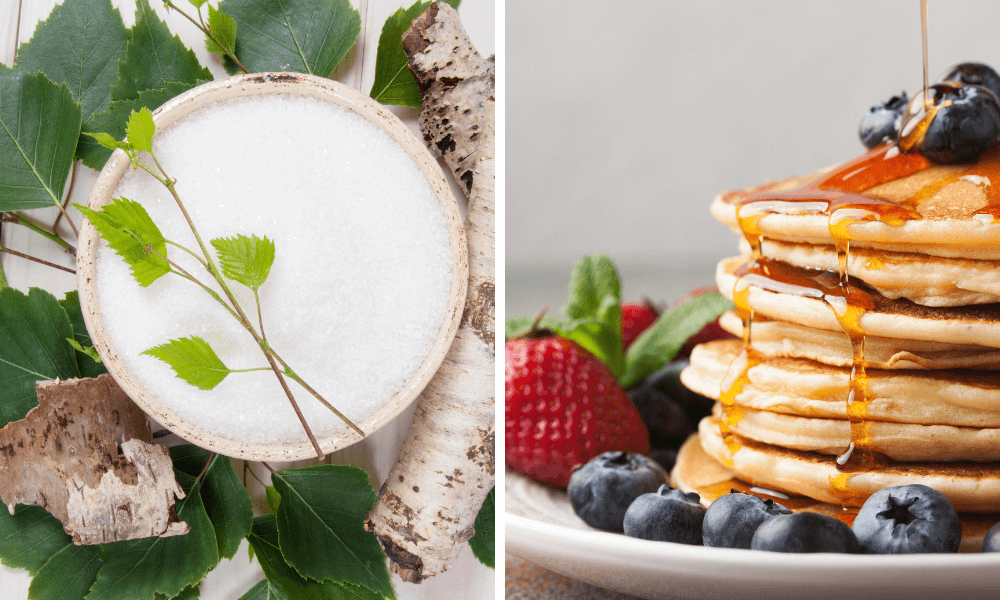
FLOUR
The primary issue with refined flour is that through extensive processing, it contains significantly less fiber than its whole-grain counterpart. Your body needs as much fiber as possible for proper metabolic function. Unfortunately, white flour is a simple carbohydrate, which essentially affects your body the same way sugar does. Carbohydrates are quickly absorbed, causing a rapid spike in blood sugar levels, followed by an equally rapid drop shortly after. This results in the so-called “ravenous hunger,” where you feel like you need to eat something immediately, or you’ll starve.
- Instead:
Whole-grain flour. Whole grain flour includes the entire grain, thereby retaining the fiber-rich bran. It is also rich in vitamin B1, which plays a crucial role in carbohydrate metabolism. Its B5 vitamin content aids in the breakdown of fatty acids and carbohydrates, promoting healthy nervous system function.
Oat Flour: Exceptionally rich in fibers and minerals, regular consumption can have a positive effect on cholesterol levels and stimulate healthy bowel function. With numerous beneficial properties, oat flour is one of the best alternatives to white flour in terms of nutrient composition.
Spelt Flour: Particularly important for vegetarians as it contains the complete amino acid profile found in meat. It is especially recommended for diabetics, as clinical trials have shown that the condition of diabetics improves among consumers of pure spelt wheat!
There is no shortage of alternatives; we just need to pay attention to not automatically grab white flour off the shelf. Instead, look around for other types of flour and consider their manufacturing processes.
CARBONATED SOFT DRINKS
Since we mentioned cola earlier, let’s move on to carbonated drinks. The phosphoric acid found in sugary carbonated drinks disrupts the body’s calcium-phosphorus balance, starting to leach calcium from bones and teeth. The high sugar content in these drinks contributes to overweight and can lead to diabetes, increasing the risk of heart attacks, strokes, and cancer. An average carbonated soft drink contains 9 teaspoons of sugar and 150 calories.
The diet versions aren’t any better due to the abundance of artificial sweeteners. They contain high-fructose corn syrup, which is a simple carbohydrate and thus easily absorbed, raising insulin levels. While it might feel like carbonated drinks quench your thirst, the truth is they do the opposite, causing dehydration. Most carbonated drinks contain caffeine, which is a diuretic. So even if you drink up to 3 liters, you won’t be adequately hydrated.
- Instead:
As mentioned in the first part of our detoxification article, a good alternative would be green tea or naturally, still, or filtered water.
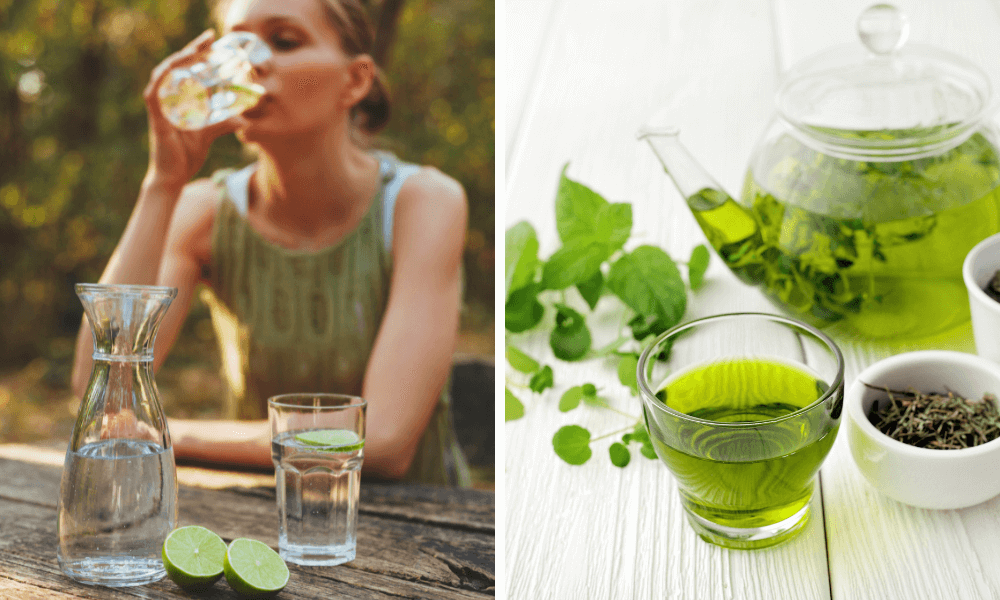
FAST FOOD
Many people are familiar with the scenario of eating a hamburger or other fast food meals accompanied by a carbonated soft drink. It is worth knowing that while these foods bring a lot of calories into the body, they contain very few nutrients. Essentially, you are consuming “empty” food. You might feel stuffed at first, but soon hunger strikes again because your body craves nutrient-rich food. Fast foods are loaded with saturated fats and oils—a cheeseburger, for instance, is full of them. These fats raise blood cholesterol levels, which is detrimental to the heart, increasing the risk of heart disease. For the sake of our health, we should avoid these fast-food restaurants.
COOKING OIL
Speaking of fats and oils, what about cooking oil? It is better to switch to a healthier and more environmentally friendly alternative. Firstly, during frying, the structure of cooking oil changes, turning into trans fats, which are particularly unhealthy. Prolonged frying can produce carcinogenic breakdown products. This harmful property is even more pronounced with supposedly healthy olive oil. It’s not just about health! Did you know that cooking oil is extremely harmful to the environment? Every drop of cooking oil can pollute a million drops of clean water. Since cooking oil is mostly poured down the drain, it enters the water cycle, contaminating our waters.
- Instead:
Use coconut oil for frying and cooking! But make sure not to grab the hydrogenated coconut oil off the shelf! Did you know coconut oil is also good for teeth whitening and oral care?
FRESH FOOD INSTEAD OF CANNED GOODS!
If we want to cook something quickly, canned goods might not seem like a bad idea at first. They have a long shelf life and are easy to transport. So what’s the problem with them? It’s not the food itself, but the cans, which contain a harmful compound called Bisphenol A (BPA). BPA is a synthetic compound not found in nature, and it’s just one of many man-made substances that can disrupt the hormonal system. This compound is used in the internal coating of food cans, water pipes, and dental fillings. Even in very small amounts, BPA is harmful to living organisms because it alters the function of the endocrine (hormonal) system by mimicking the body’s own hormones.
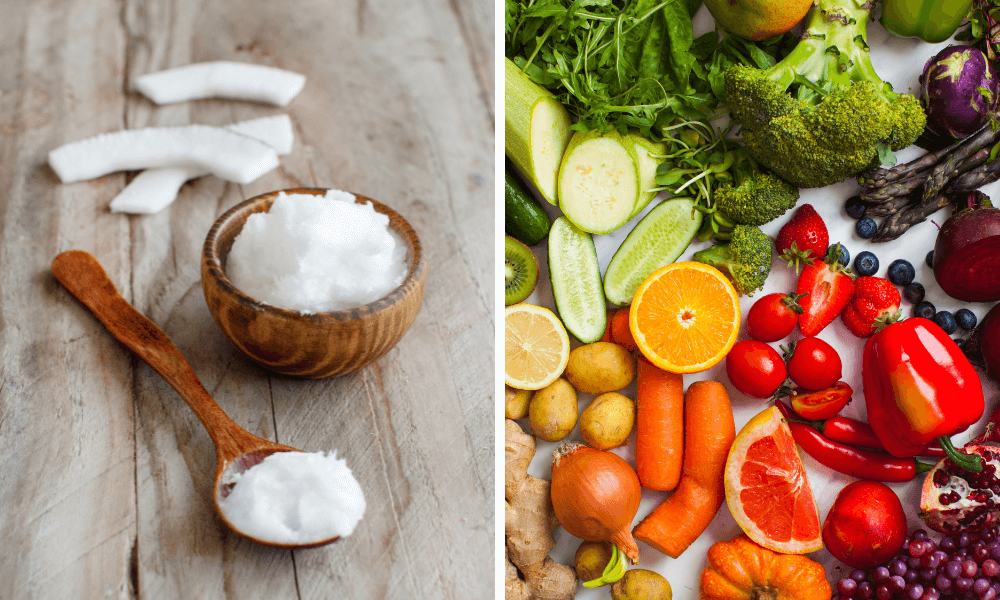
SPICES
Spices not only serve to flavor food but also contribute to proper digestion. However, as with everything, moderation is key! Whenever possible, buy fresh herbs and use them in cooking. Freezing herbs can help preserve their freshness and longevity, unlike their dried and packaged counterparts. It is important to avoid spice mixes, such as Vegeta, as these often contain numerous flavor enhancers and additives.
ALCOHOL AND CIGARETTES
These two substances need no introduction, as everyone is aware that they are “stealthy killers.” Both are extremely harmful to our health. Cigarettes yellow the teeth, and the tar from smoking accumulates in the lungs, leading to shortness of breath and, in worse cases, lung cancer.
Excessive alcohol consumption slows down the functioning of nerve cells, weakens the heart, impairs liver function, and can cause stomach problems. Both substances can easily lead to addiction, but it’s never too late to quit! Every change begins with a small step.
Did you know that, unlike excessive alcohol, a glass of red wine has many beneficial effects? Compounds in red wine help keep cholesterol levels within the normal range by lowering bad cholesterol and increasing good, protective cholesterol. It can help prevent blood clots and, being rich in antioxidants, as well as vitamins C and E, it can not only help prevent cancer but also slow the aging process. Just don’t overdo it! Drink responsibly!

The “what to avoid” list is endless, and if we list everything, it might discourage and overwhelm you, making you wonder what you can safely consume with peace of mind. However, as a final note, we would like to draw your attention to a few more things: foods enriched with GMOs (store-bought meats that are not labeled as “GMO-free” have likely undergone genetic modification), UHT milk (ultra-high temperature processed milk), canned foods, pickled foods, burnt foods, not-ripe fruits, and pre-packaged semi-prepared or ready-made meals should also be avoided.
Changing habitual, ingrained habits is not easy, but for the sake of your health, it is necessary. Of course, no one expects you to abandon your current eating habits, familiar flavors, and favorite foods overnight. However, if you set smaller goals for yourself—like “starting tomorrow, I won’t drink carbonated and sugary drinks”—it will be much easier to embark on the path of detoxification and, consequently, a healthier life. It’s important to see a healthier lifestyle not as a list of sacrifices but as an opportunity to try new recipes and foods that your body will also appreciate!
CHALLENGE – DETOXIFICATION – CLEANSING
Keeping a journal is important because it allows you to look back at your body’s changes and track your progress, identifying areas where you’ve improved and where you still need to make changes. Here are some questions to help you easily put your experiences on paper:
- What unhealthy foods do I consume daily?
- What do I pay attention to when choosing foods?
- How often do I eat sugary foods?
- When I buy flour, what type do I choose?
- How often do I consume dairy products?
- Which "harmful" foods would I like to give up but find difficult to?
- How can I replace these "harmful" foods?
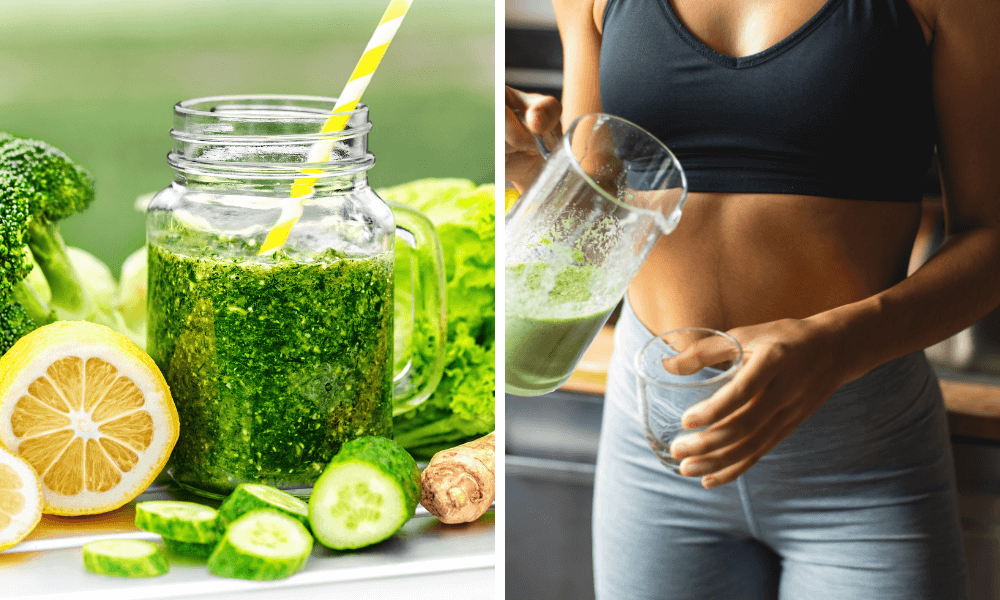
Author: Eszter Csalava
OXYGEN THERAPY AND OXYGENI HAIR PRODUCT REVIEWS




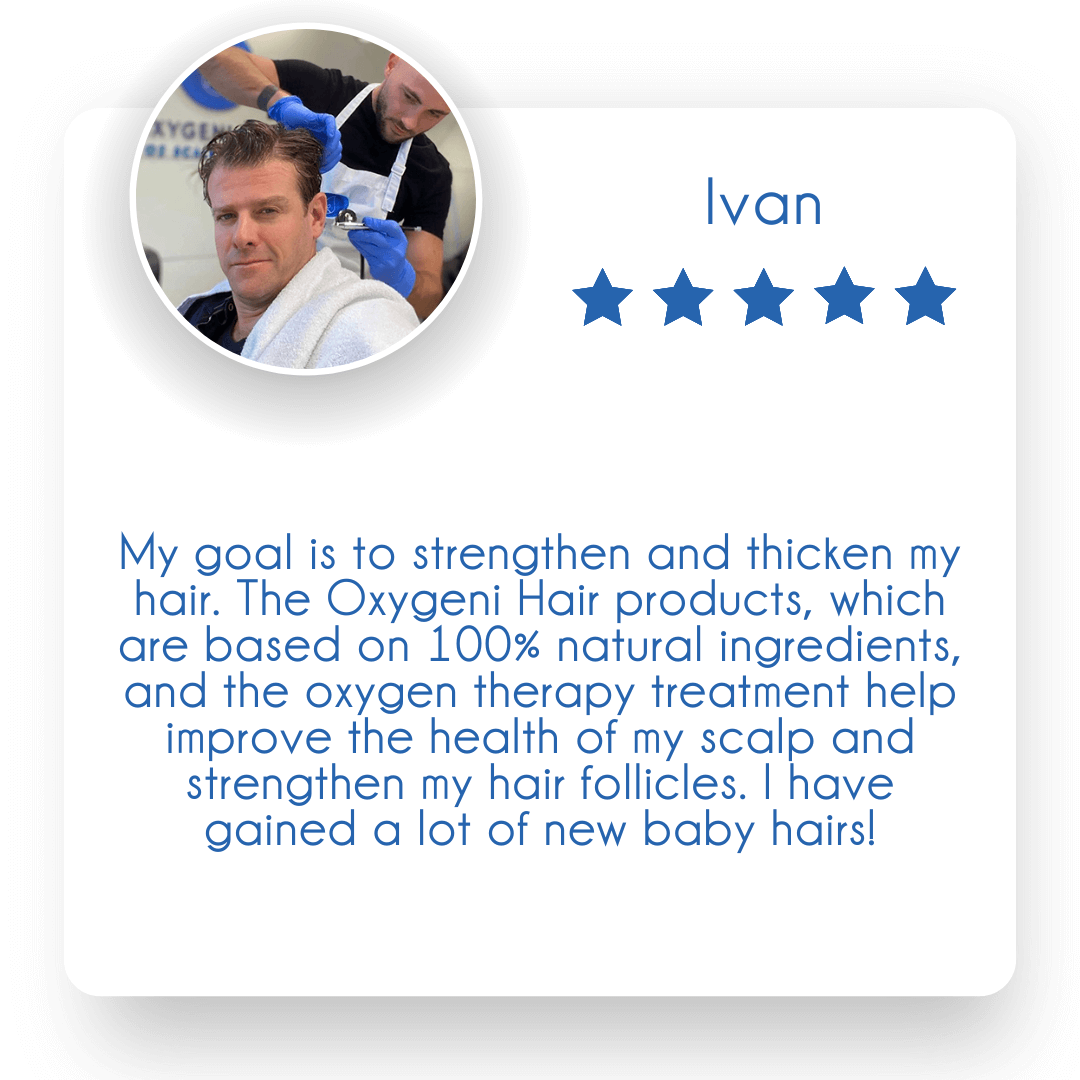


Follow us on our social media platforms!







